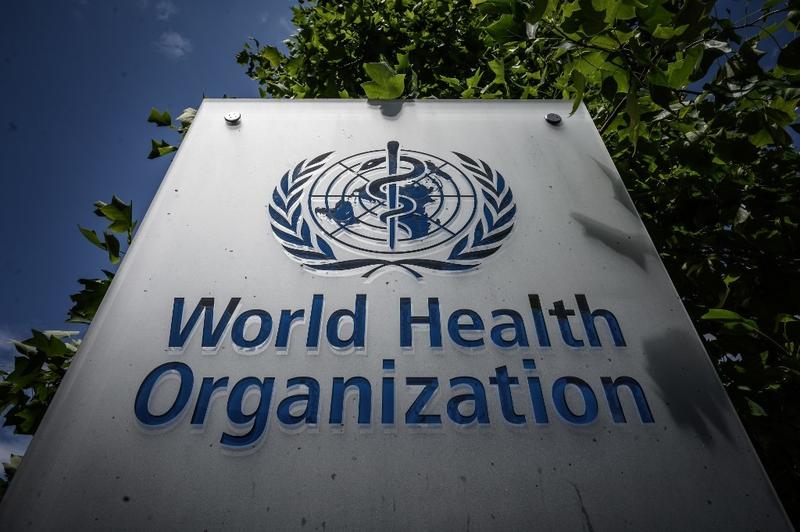 This photograph taken on July 3, 2020, shows a sign of the World Health Organization (WHO) at their headquarters in Geneva, amidst the COVID-19 outbreak, caused by the novel coronavirus. (FABRICE COFFRINI / AFP)
This photograph taken on July 3, 2020, shows a sign of the World Health Organization (WHO) at their headquarters in Geneva, amidst the COVID-19 outbreak, caused by the novel coronavirus. (FABRICE COFFRINI / AFP)
A move by some European nations to quit talks on global health reform have sent out a clear message to Washington that the European Union is prepared for the World Health Organization, or WHO, to run without the United States, analysts have said.
Experts said that the US withdrawal from the WHO appeared politically motivated, with the imminent elections driven short-termism as the propelling force
The agency is headed for a major shake-up, but attempts by the United States to dominate the negotiations after its decision to pull out of the international health agency have prompted France and Germany to leave the talks, according to Reuters.
The US, which holds the rotating G7 presidency this year, had hoped to carve out a common road map for a sweeping overhaul of the WHO in September, two months before the US presidential election.
Christopher Bovis, a law professor at the University of Hull, speaking about the pullout, said: "The withdrawal of France and Germany from the talks of the reform agenda is a diplomatic message to the USA, in advance of the G7 trade preparations during the autumn of 2020.
ALSO READ: WHO: Over US$100b needed to ensure access to vaccines
"Put simply, the EU is prepared for the WHO functioning without US membership and funding, and it wants to make this clear to the G7 and G20 Groups, plus the United Nations."
US President Donald Trump formally began the withdrawal process in early July, accusing the WHO of being under the influence of China in the wake of the coronavirus pandemic.
Experts said that the US withdrawal from the WHO appeared politically motivated, with the imminent elections driven short-termism as the propelling force.
New governance blueprint
"Undoubtedly, the WHO needs reform and a new governance blueprint, but the sheer political manipulation of international organizations by the US administration has eroded any goodwill on the part of the EU and its member states, as well as China," Bovis said.
"At a time when the world needs leadership and guidance on health issues, politics should not play any part in the planning."
Andrew Cainey, senior associate fellow at the Royal United Services Institute, an independent think tank, said: "It would be much better to investigate jointly what areas need reform, what lessons can be learned from the handling of the COVID-19 pandemic, and what the WHO will need to do in future, in a spirit of partnership and cooperation with other countries.
"All organizations have failings-and the WHO is no exception-but there are strengths, too."
Karol Sikora, dean of medicine at Buckingham University, echoed Cainey's views, saying: "The WHO badly needs reform, and there's no other organization that can take up its role.
"The pandemic has shown that disease recognizes no borders.
"We desperately need an international body that commands respect, is effective and forward looking,"Sikora said.
Washington's departure from the WHO with the cessation of it majority funding from 2021 has triggered the G7 reform agenda with proposals for the governance, structure and funding of an international organization dealing with world health issues.
READ MORE: WHO: People shouldn't fear virus spread in food, packaging
The German and French health ministries last week confirmed to Reuters that the two countries were opposed to Washington leading the talks after it announced plans to leave the WHO. And an Italian health ministry spokesperson said that work on the reform document was still under way, but Rome's position was in line with Paris and Berlin.
Speaking about the EU alliance, Bovis said, "The EU and its member states, including France and Germany and Italy have a common position for the WHO reforms. And the EU alliance will antagonize the US during the current G7 round of trade talks, and prompt China to resume a greater role in the WHO."
He believes China will seriously consider stepping into such a lead position, amid the current state of its relations with the US.



